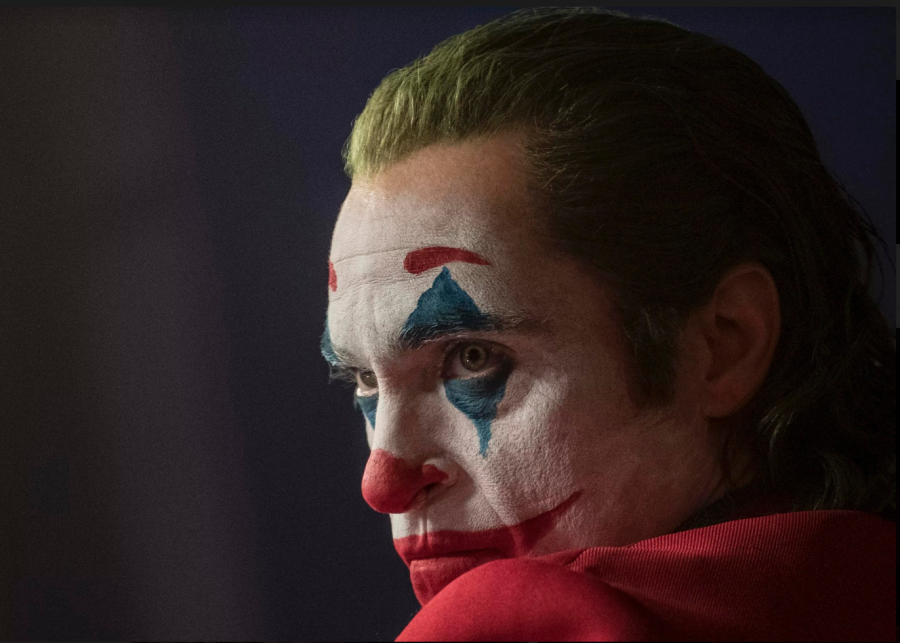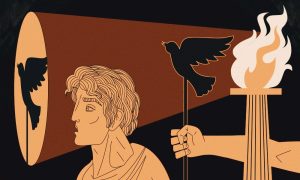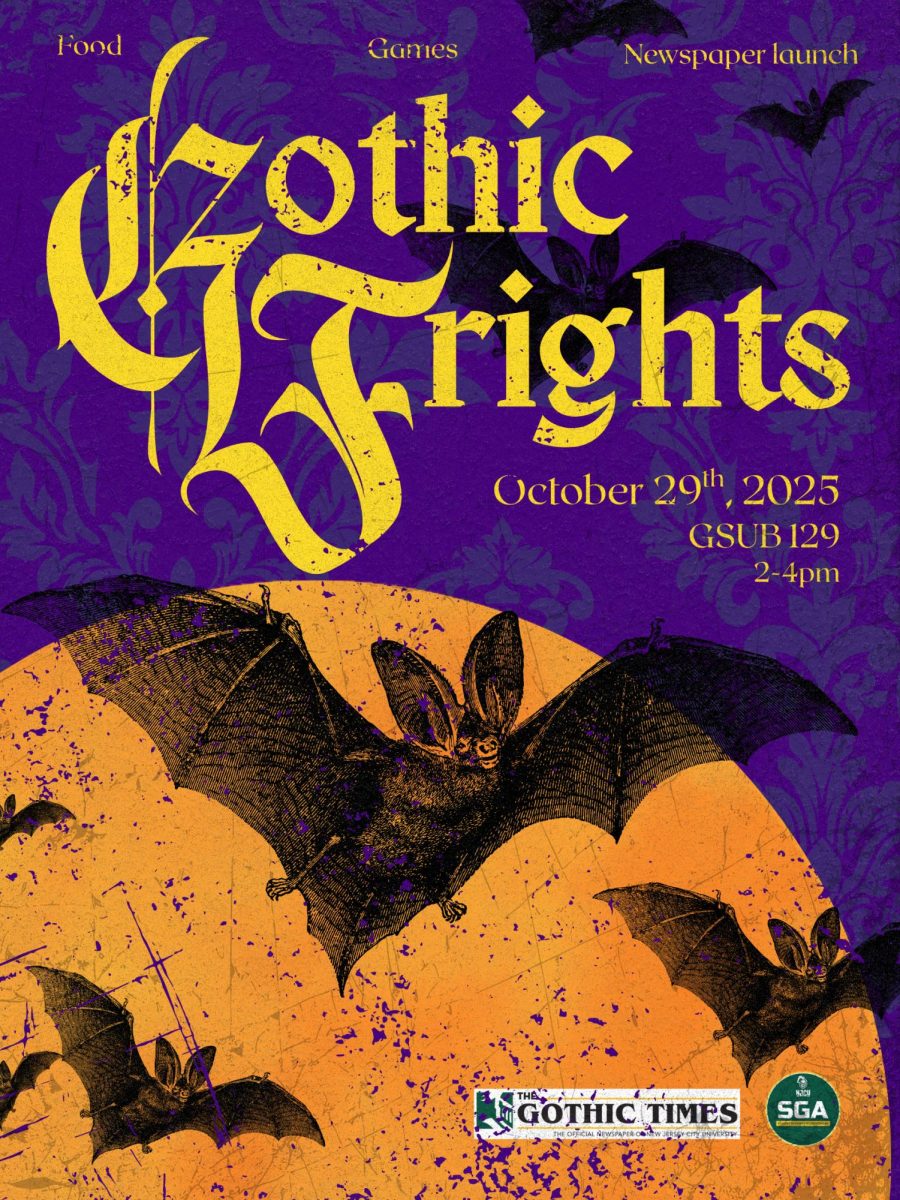The Joker: An Exhibition of Madness
October 29, 2019
In the time of spectacular Marvel movies, DC Comics hits home with the gritty, psychological thriller, Joker. The film depicts the rise and fall of Arthur Fleck’s life, initially preparing the audience with a happy-go-lucky statement, “My mother always tells me to smile and put on a happy face. She told me I had a purpose: to bring laughter and joy to the world.” In both official trailers, you may observe Arthur’s struggle with his mental health and the deteriorating society of Gotham City. Having no success in improving his outlook on life, Arthur uses stand-up comedy as a coping mechanism. Right off the bat, Joaquin Phoenix’s maniacal laugh captures your attention as his laughter is not spurned from good humor, Arthur’s laugh derives from a barely-perceived, unseen disturbance.
Arthur lives on the not-so-beautiful part of Gotham City, taking care of his mother, who is also mentally-ill. Taking place in the in 1980s, Gotham has not yet seen the rise of Batman, fighting for justice against criminals. A storm was brewing in Gotham as people are living in poverty and no one is listening to them. Gotham was waiting for someone to release the rallying call to fight against the very people that have wronged the people of the city. Meanwhile, Fleck is dealing with his mental illness by means of therapy, Fleck only has negative thoughts and is tired of being asked the same, redundant questions by his psychologist.
In the words of James Baldwin in his work of nonfiction, The Fire Next Time (1963), “The most dangerous creation of any society is the man who has nothing to lose.” Suffice to say, Arthur Fleck has nothing to lose, beginning his transformation into the Joker. There is nothing better to describe the process of metamorphosis our protagonist undergoes as Fleck is a mentally disturbed person, who is grasping onto a thread of reality. As Arthur struggles with his job as a clown, enduring the callous treatment of his coworkers, Fleck is pushed to the very edge. Society has, by no means, been cruel to this man and the society of Gotham deserves whatever is going to rain upon it.
Of course, this is the way Todd Phillips, the director, wants the audience to feel. An emotional connection. They want you to sympathize and feel pity for Arthur Fleck. We are invited into the film through the trailers to experience Fleck’s view on society. By no means, our protagonist is not the “hero” as the title might suggest. Nevertheless, Todd Phillips wants us to see how society has molded the iconic jester of crime, The Joker. In a similar manner, Joker does what Avenger’s Infinity War did with Thanos, the audience saw the supposed “antagonist” side of the argument. The cinematography of the film is gritty and graphic, at some aspects. A dimly-lit production, focusing on Arthur’s impoverished lifestyle, even the dreams he may’ve wanted to pursue – aspiring for love, a future in comedy – which did not come to fruition. Joaquin Phoenix, Robert de Niro, and Zazie Beetz’s performances are unexpectedly grand, marking the film as a Shakespearean tragedy. Arthur’s life was ridden in trauma, leaving him with an unresolved mental state, an essential standstill, which Joaquin Phoenix and Todd Phillips mastered.













